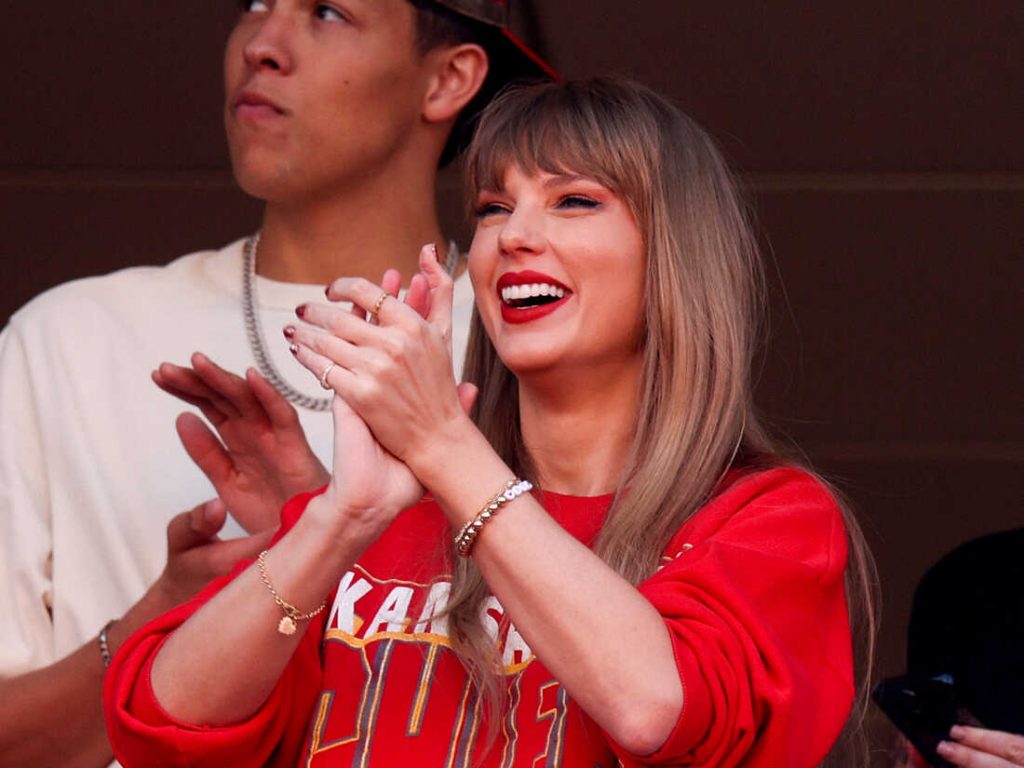IMG reveals 2024 digital trends
December 4, 2023

Global sports, events and representation company IMG has launched its Digital Trends Report 2024, exploring the technologies and developments that will shape the sport media landscape for rights holders over the next 12 months. Now in its sixth iteration, this year’s predictions include the growth of smarter stadiums, tactical adoption of generative AI, and monetising women’s sport through digital – to name a few.
Featuring insights and analysis from IMG’s global team of digital experts (formerly known as Seven League), the report breaks down the biggest developments in the sector and how they will influence the ways sports brands and organisations engage fans and audiences.
For the first time, the report ranks the 10 most important third-party media platforms for the global sports industry with TikTok coming out on top, followed by YouTube, Instagram, Facebook and WhatsApp. The platforms are ranked based on a detailed analysis of their audience profile and growth, commercial potential and the functionality they offer both rights holders and users, among others.
IMG’s Senior Vice President & Managing Director of Digital, Lewis Wiltshire said: “The unprecedented speed with which AI blew the doors off the technology landscape in 2023 has unquestionably moved us into a new era of digital. We are now in an age of AI, mixed reality, and streaming. This year’s Digital Trends Report is the first time we’ve done this under the new IMG brand, which seems fitting. We’re proud to present rights holders with a clear view of the technology they need to be aware of over the next 12 months and proud to offer paths through this landscape as part of IMG, with our digital expertise now at the very heart of the organisation’s strength and scale.”
Headline predictions from the Digital Trends Report 2024 include:
- Your stadium will get smarter: Driven by technologies that enhance the fan experience, digital engagement will be at the forefront of the stadium experience in 2024. The value of smart stadia will come in many forms, including reduced overhead costs, improved revenue, and deeper fan connections. Not only will smart solutions help control the stadium’s infrastructure more effectively, regulating lighting, heating and cooling, but it will also help rights holders unpackage their sponsorship proposition, enabling the creation of more targeted advertising for brands. Both the NFL’s San Francisco 49ers and the Premier League’s Tottenham Hotspur’s are already leading in this space.
- AI: cut, create, cultivate: Since the launch of ChatGPT last year, the adoption of generative AI has surpassed all expectations. In 2024, sports organisations will have a clearer idea of how to use AI and to unlock efficiencies in their processes, develop new and innovative content formats and marketing campaigns, and identify new commercial opportunities in large data sets. Early examples will see sports using AI to improve ticket and retail conversion through better user targeting, while rights holders will seek to reduce churn on streaming and membership services and optimise pricing through much deeper predictive analytics.
- Web3 shakes down, machine learning powers up: We are at the start of a third age of the internet and some technologies will begin to emerge as category-defining, while others will fall away. Most notably, this shakedown will be led by web3 technologies underpinned by the blockchain, immersive experiences encompassing everything from VR to virtual worlds, and machine learning.
- Women’s sport monetises through digital: Women’s sport now has a very engaged, digital-savvy audience and highly-engaged pockets of online communities. There is already data to suggest these communities will over-index on support of the brands that commit to it – for example, Michelob Ultra found that fans of women’s sport are 30 per cent more likely to engage with its brand. 2024 is the moment that rights holders can translate digital engagement to effective commercial partnerships.
- Personalisation becomes business critical: Personalised experiences are now an expectation, not a frill, and the driving force behind this trend comes from changing consumer needs. Every sport is faced with concerns about ageing audiences in-stadia and on TV, and competing with a huge variety of attractions for the attention of Gen Z and Gen Alpha. This means sport is now competing for audiences who are used to algorithmic recommendations or personalised feeds across their platforms, and any league or club-owned product needs to get on board with reaching that level of sophistication.
- Stop saying ‘social’ media: It’s time for sports rights holders, leagues, and governing bodies to stop saying ‘social media’. The major platforms don’t exist simply to connect people publicly with friends and family – that behaviour has moved to private messaging apps and groups. By taking the emphasis off the ‘social’, sports organisations can and will reassess how they distribute and syndicate content and messaging, while making big decisions on which platforms they focus their efforts on to achieve their objectives.
- The rise of the mega influencer: In the past year, the world saw Cristiano Ronaldo join the Saudi Pro League, Lionel Messi go to Major League Soccer in the US, and Taylor Swift start dating the Kansas City Chiefs’ tight end Travis Kelce – creating tidal waves in their respective leagues, attracting new fans and driving growth opportunities. In 2024, sports rights holders need to take advantage of any initial entry point which helps extend their fan base, even if that means their cap becomes more famous than their team.
